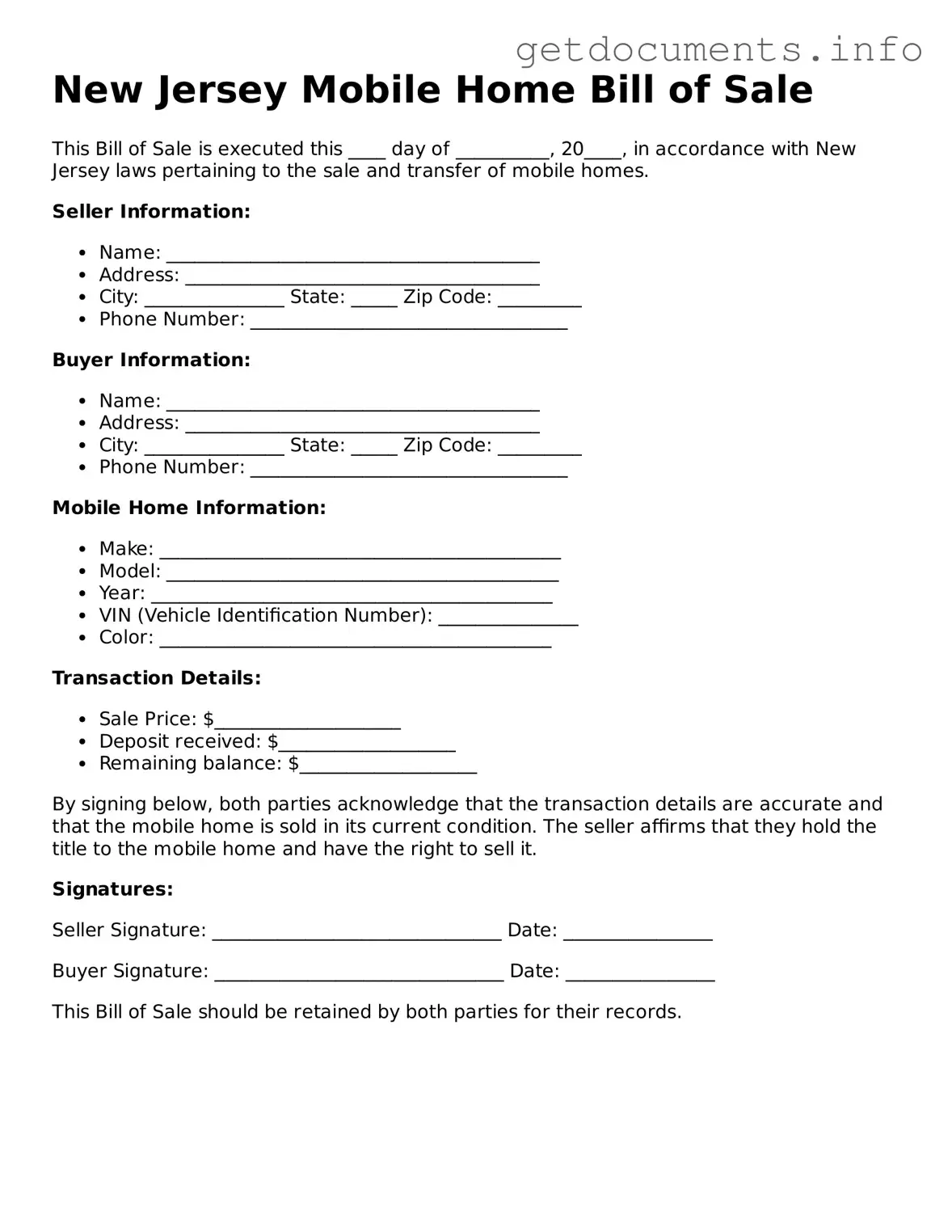Free Mobile Home Bill of Sale Template for New Jersey
The New Jersey Mobile Home Bill of Sale form is a legal document used to transfer ownership of a mobile home from one party to another. This form ensures that both the buyer and seller have a clear record of the transaction, protecting their rights and interests. To facilitate this process, consider filling out the form by clicking the button below.
Access Mobile Home Bill of Sale Editor

Free Mobile Home Bill of Sale Template for New Jersey
Access Mobile Home Bill of Sale Editor
Got places to be? Complete the form fast
Fill out Mobile Home Bill of Sale online and avoid printing or scanning.
Access Mobile Home Bill of Sale Editor
or
⇩ PDF File
